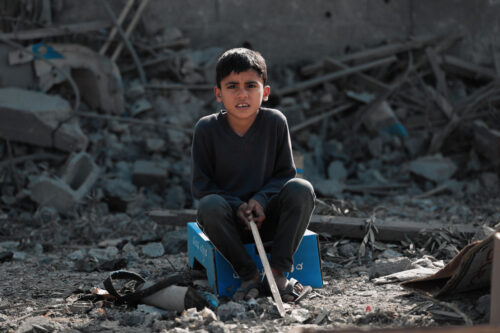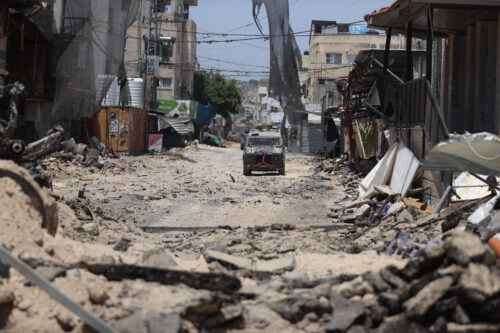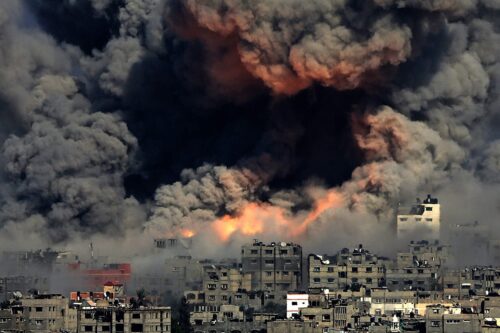Back to School: Inspiring Minds in Occupied Palestine
As Hanan Al Hroub was announced the official winner of the 2016 Global Teaching Prize in March, hundreds flocked to her home town in the West Bank to watch her accept the award for her outstanding contributions to teaching.
As a child born and brought up in a refugee camp, Hanan’s victory delivers a clear message to those in doubt about the significance of the right to education for the Palestinian people. Education is held in high esteem amongst families and is symbolic of their consciousness of human rights. After the Nakba, much of Palestinian history and identity was subjugated. Information was censured in textbooks and mainstream schools; independent religious institutions were made redundant. It was only in the early ‘90s that Palestinian history was reintroduced into mainstream textbooks, allowing students to reconnect with their identities and insert their narratives into the national and cultural history.
Hanan Al Hroub joins a long list of inventors, writers, artists and scientists in demonstrating the major achievements made by the Palestinian people and their impact on modern society. From the schoolchild studying basic Maths and English skills, to the eighteen year-old completing their university entrance exams, Palestinian youth have fully acknowledged the power of education as the main platform towards promoting awareness and sparking developmental change in the occupied territories.
Undeniably, this has led to the formation of a unique culture of high achievement.
. The rate of Palestinian refugees aged 15 and over holding their first university degree and higher is 9.2% of the total number of the refugee population of the same age group, compared to only 8.4% for non-refugees (UNRWA, ). Currently, UNRWA provides free schooling for Palestinian children. Their education programme comprises 700 schools, 10 vocational training centres, 6,209 training places, three educational science faculties; 1,415 teachers in training and 1,700 student teachers.
However, it is important to mention that Palestinian students are trying to lead a normal life despite living in abnormal circumstances. Although now there is far more flexibility in terms of progression, there are still chronic problems with supporting the costs of education.
Amongst young Palestinian men in particular, education is not always viewed as the best option to escape poverty and oppression. They struggle to support elderly family members and are unable to start their own due to the high cost of weddings and dowries. For this reason, it is common for Palestinian men to leave education early to pursue work, or brave the dangerous journey to Europe in the hope of finding employment.
In addition, UNRWA has encountered numerous problems with funding. In 2015, the school year risked a delay due to a major funding crisis. Recent shortages in their annual budget alongside the challenges of the economic blockade have put an extra strain on their resources. Many families are still living below the poverty line and are unable to adequately prepare their children for education, leading to an increased number of drop outs and illiteracy rates. Palestinian youth are achieving against the odds but the need for sustained support in education is something that cannot be overlooked.
Calculate your Zakat
Confused about how to calculate your Zakat? Try our simple-to-use calculator




